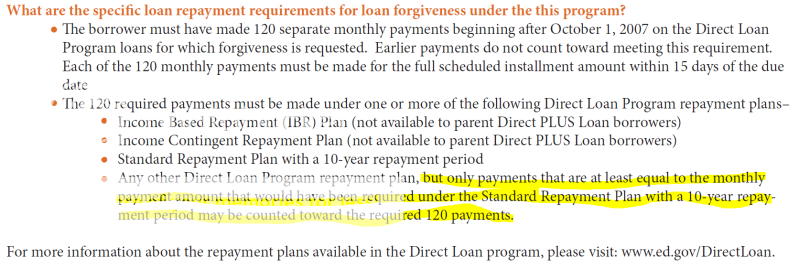The program sounds great. I am an HSCP'er with lots of loans... Over $200K from undergrad/postgrad combined.
My concern would be, WHAT IF in 9 years they decide to discontinue the program. (Given the current spending spree in government, it won't take long before someone has to start cutting the budget etc anywhere they can to pay for all the welfare type programs current and new)
So, is there any way to "LOCK" into this program, or is it all just based on the hope that they will pay.
My wife and I were planning to live meagerly for a while to pay off my loans within the first 8-10 years. I qualify for 25 year repayment, under this program... but if for some reason they don't pay the left over amount after 120payments, then I get stuck with almost as much in interest as the original loans themselves.

A very sticky situation. Pay them off myself quickly, or HOPE that the government will pay it off for me in 10 years.
.... Any Thoughts???

